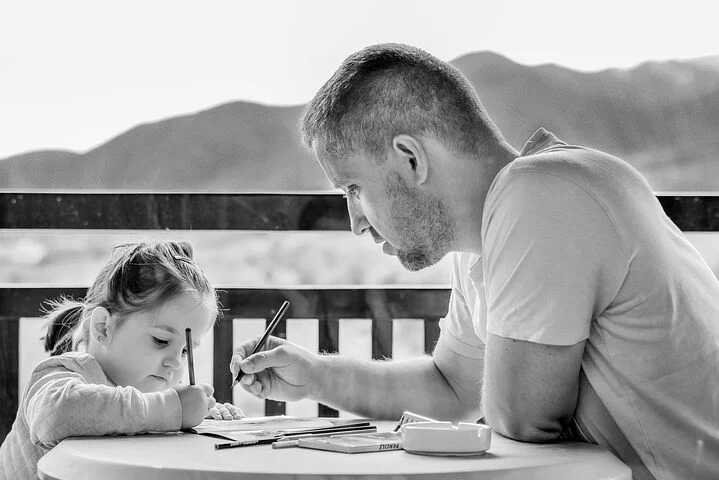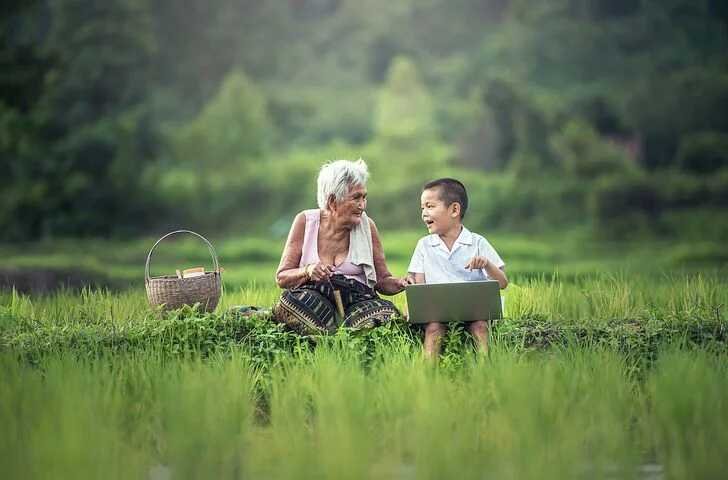Psychology of Behaviourism and Learning
Psychologists have always viewed the concept of "learning" as an alteration in the behaviour of someone through experiences. In this definition, the keyword there is "behaviour". This means that learning is substantiated by behavioural changes. This can also explain why, in the major part of last century, behaviourism formed the bases of the study of the learning process. As a matter of fact, effective learning process cannot be said to have taken place if there is no complementary behavioural change to substantiate it.

However, behaviourism, according to John B. Watson (one of the fathers of behavioural psychology) has been linked majorly to the study and measure of observable behaviour. Obviously, you can only measure what you can observe. Then putting this into the initial definition I gave, learning can be said to be an alteration in the observable behaviour of someone through experiences. Now it makes more sense right?
The concept of learning is one that cuts across many aspects. For example, everyday we live, we are presented with opportunities to learn a thing or two. Not just that, even as we relate with people, the learning process continues. As a matter of fact, there is no relationship or contact you have with someone that will leave you the same - you will pick a new info which also has the propensity to alter your behaviour. Note: learning does not automatically means picking up good knowledge, it's only a matter of choice because one can still pick up the wrong knowledge and they will put up wrong behaviour.
There are many ways through which the learning process comes. The first process we'll talk about is "Observational Learning". You will agree with me that there are many things you have learnt over time by just watching people do the same. Even as kids, most of the things we learnt were by imitation. Obviously, observations delivers the required experience that will lead to the learning process.
A renowned Social Psychologist and one of the proponents of the theory of social learning, Albert Bandura, have recognized that people tend to learn more by observation and imitation of others. This is also the reason children tend to pick up fast what they see their parents do.
When humans are born, their brain is almost tabla rasa, according to some research, but through experiences, learning will take place over time and they keep acquiring knowledge. It is a popular belief that learning starts at birth and ends at death.

Many of you, if you you can relate when you were learning how to drive, I believe it was like an uphill task - you would look at the gear to shift it and all, but with time, you kept getting better. This is relatable to what happens with other aspects of the humans life. Once experiences (practice, trials, experimentation) are there, then learning is inevitable.
Just like I usually tell people, there is no one that has the status of being the world's repository of knowledge - everyone's knowledge is basically a subset of another person's knowledge.
Asides the "Observational Learning", there is the one that is worthy to be mentioned and that is "Learning by Classical Conditioning". Just like the name suggests, this is the kind of learning that is triggered by the relationship between a previous response and a stimulus.
A particular psychological research was carried out by Ivan Pavlov using dog as the test subject. In the research, he would normally ring a bell when giving food to his dog. Of course, dogs are known to salivate when they see food but not when they hear some random sound right? However, the dog, over time, got used to the sound from the bell and associated it with food. A point came when Ivan Pavlov, rang the bell without presenting food to the dog but the dog salivated nonetheless because of the relationship of the response to the stimulus. This is what Classical Conditioning represents.
In all these types of learning (the ones mentioned and not mentioned), one thing is unique among them and that is the change in behaviour of the individual. The only observable way to prove you have relative knowledge about something is by applying it through your behaviour and actions.
You can also read this article about Classical Conditioning and about Psychology of Learning.
Thanks for reading
@tipu curate
Upvoted 👌 (Mana: 0/4)
Thanks bro Mat
Hey, buddy, I have a certain passion for the psychological. My dad is a psychologist, and I've always had a connection with that area. At some point I thought about specializing in psychiatry after finishing my medical studies, but surgery attracts me much more.
In the end, it all comes down to studying behavior as the best or only verifiable means that something has actually been learned, as I understand it. I like what you say, no one has anything but knowledge acquired from others, I think in a way it is not ours, but borrowed
I also think that each stage of being human could be characterized by the predominance of a particular way of learning, imitation, visual, etc., and that it can also be different in each person.
Many thanks for the amazing comment buddy. I love the last paragraph of your comment. Yeah, there's always a particular way of learning at each stage of development.
I think the comments should be meaningful, and complement what you have read. Otherwise, it's absurd...
Thank you for sharing your good content.
It's an honour buddy